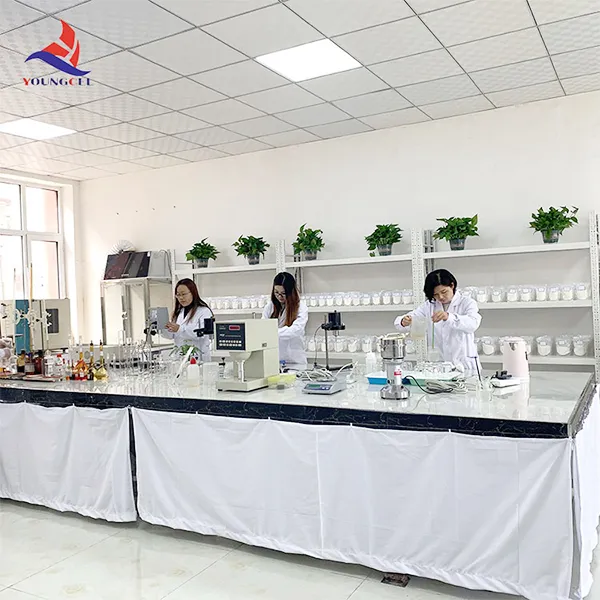Cellulose Manufacturers Driving Innovation in Sustainable Materials
In recent years, the demand for sustainable materials has surged, driven by increasing environmental awareness and the need for eco-friendly products. Cellulose, a natural polymer derived from the cell walls of plants, has emerged as a key player in this shift. Cellulose manufacturers are at the forefront of this revolutionary change, providing innovative solutions for various industries, including textiles, paper, food, and pharmaceuticals.
Cellulose is the most abundant organic polymer on Earth, making up a significant portion of the cell wall in green plants, trees, and some algae. Its unique properties—including high tensile strength, biodegradability, and versatility—make it an ideal candidate for numerous applications. Cellulose manufacturers harness these properties to create a wide range of products that cater to consumer needs while minimizing environmental impact.
One of the primary applications of cellulose is in the production of paper and packaging materials. The traditional paper industry has faced criticism for its dependence on deforestation and unsustainable practices. However, with the rise of cellulose manufacturers who focus on reusing agricultural waste and sustainable forestry, the paper industry is undergoing a transformation. Eco-friendly paper products made from recycled cellulose fibers not only reduce waste but also lower carbon footprints. Brands are increasingly opting for these sustainable alternatives to appeal to environmentally-conscious consumers.
In the textiles sector, cellulose derivatives like viscose and lyocell are gaining popularity as sustainable substitutes for synthetic fibers like polyester and nylon. Viscose is made from regenerated cellulose and offers a soft, breathable fabric that resembles silk. Lyocell, on the other hand, is produced through a closed-loop process that recycles water and solvents, minimizing waste. As fashion brands incorporate sustainable practices and materials, cellulose manufacturers are positioned to meet the booming demand for eco-friendly textiles that do not compromise on quality or style.
cellulose manufacturers

The food industry is also seeing a rise in the use of cellulose as a thickening agent, emulsifier, and stabilizer. Microcrystalline cellulose, for example, is a commonly used food additive that enhances the texture of various products, from salad dressings to baked goods. Its ability to retain moisture and improve mouthfeel without adding calories makes it an attractive option for health-conscious consumers. Cellulose manufacturers are continuously exploring new ways to utilize this versatile compound, offering innovative solutions for food product development while adhering to strict safety standards.
Moreover, cellulose plays a crucial role in the pharmaceutical industry, where it is used as a binder, excipient, and controlled-release agent in tablet formulations. Cellulose-based materials offer the advantage of biocompatibility and biodegradability, catering to the growing demand for sustainable healthcare products. Manufacturers are investing in research to develop novel cellulose derivatives that can enhance drug delivery systems, ultimately improving patient outcomes.
As the world leans towards sustainability, cellulose manufacturers are not just following trends; they are setting them. Their commitment to developing environmentally-friendly processes and products underscores the growing recognition that economic growth should not come at the expense of the planet. By embracing innovation and sustainability, these manufacturers are paving the way for a greener future, one cellulose fiber at a time.
In conclusion, the role of cellulose manufacturers is increasingly critical in the global movement towards sustainability. Their ability to produce and transform cellulose into valuable products across various industries showcases the versatility and potential of this natural polymer. As consumer preferences shift towards more sustainable choices, cellulose manufacturers will continue to innovate, ensuring that they remain integral to the solution for a more sustainable world. With continued advancements and a focus on eco-friendly practices, the cellulose industry stands poised for growth and recognition as a cornerstone of sustainable development.
-
The Application and Significance of Construction RdpNewsMay.19,2025
-
Industrial Grade HpmcNewsMay.19,2025
-
Building Coating Adhesive Building Coating Adhesive HpmcNewsMay.19,2025
-
Application Of Hpmc For Detergent For Detergent In DetergentsNewsMay.19,2025
-
Application Of Hpmc Cellulose In Cement-Based MaterialsNewsMay.19,2025
-
Application Of High Quality Hpmc For Construction In The Field Of ConstructionNewsMay.19,2025




